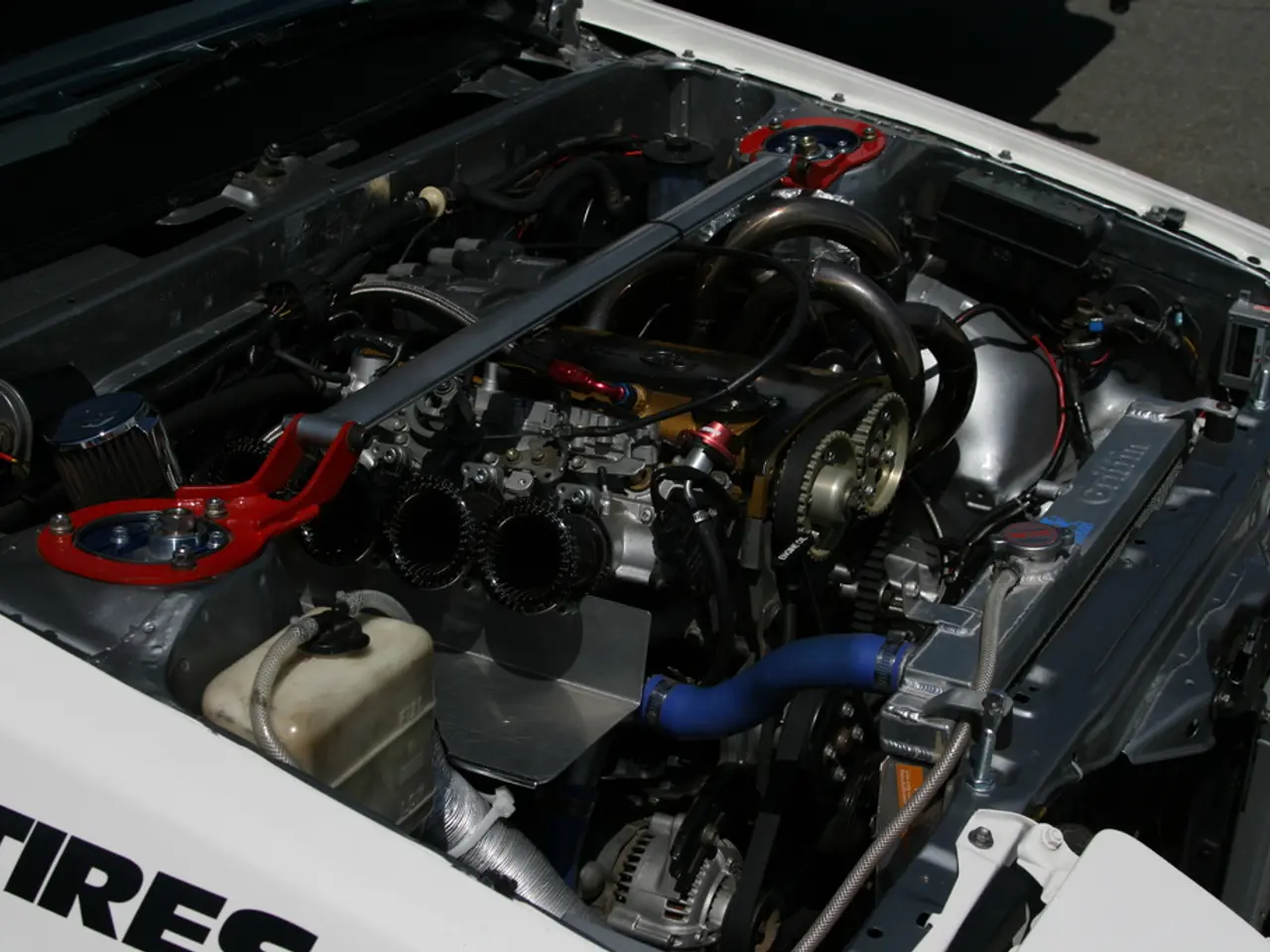Struggles at Car Dealerships and Antiquated Automobile Regulations Fuel Greater Preference for Model Y and Tesla's Direct Sales, Suggesting Potential Remedies
=================================================
In the world of electric vehicles (EVs), the sales landscape varies dramatically across different states. While some states embrace direct-to-consumer sales, others cling to traditional dealership models, creating a complex and often frustrating buying experience for consumers.
In states like Washington, Montana, and New Mexico, buyers are forced to complete their purchases online, finalize paperwork across state lines, and wait for delivery without ever taking a test drive. This is due to dealership franchise laws that require all automakers to sell through franchised dealerships, even when those dealerships have little interest in selling EVs. The reasons behind these laws include historical dealer protections, dealer lobbying, and concerns about local consumer protections.
On the other hand, states like California, Oregon, Idaho, Arizona, Nevada, and most of the West, allow direct sales from companies like Rivian, Lucid, and Tesla. These states seek to promote new business models, provide consumers direct access to manufacturers, and attract EV makers, supporting clean energy and economic development goals.
The direct-to-consumer sales model offers several advantages. For one, it eliminates the need for dealerships acting as gatekeepers, allowing buyers to have a conversation, not a sales pitch. This approach is reflected in Tesla's success, with its transparent, no-haggle sales experience, and in the EV startups' showrooms that are calm, informative, and focused entirely on the customer's experience.
Moreover, direct access to electric vehicles supports climate goals and consumer choice, as it provides clarity, convenience, and the ability to explore vehicles in person before making a decision. This is a significant advantage over the traditional dealership model, where buyers often report feeling pressured, upsold, or confused by fees.
Services like KeySavvy further modernize the used EV buying experience by making private-party sales simpler, safer, and more financially rewarding. By acting as a licensed dealer, KeySavvy expands the market for used electric vehicles in states where restrictive dealership laws limit access to new EVs.
The debate around EV sales is far from over. Ongoing debates and legal challenges, such as in California, highlight the complexity of the issue. Meanwhile, federal and state policies continue evolving around EV incentives, tax breaks, and infrastructure, impacting how dealerships and manufacturers approach EV sales.
As the EV market grows and consumer preferences shift, it's clear that forward-thinking policies are making it easier for drivers in many states to embrace cleaner transportation. However, outdated laws in others still protect legacy systems that no longer serve the public.
Environmental organizations, EV manufacturers, and consumer rights advocates are calling for reform that reflects the way people live, drive, and shop, to accelerate the adoption of electric vehicles. By reaching out to local legislators, sharing experiences, and supporting organizations working to modernize dealership laws, anyone can make a difference in fostering fairer, simpler access to EVs.
Progress happens when everyday voices speak up for a more accessible, sustainable future.
- The sales model of electric vehicles (EVs) differs significantly between states, with Californian, Oregonian, Idahoan, Arizonan, and Nevadan consumers having the advantage of direct sales from companies like Rivian, Lucid, and Tesla, unlike those in states like Washington, Montana, and New Mexico who must purchase online due to dealership franchise laws.
- The policy-and-legislation surrounding EV sales is subject to ongoing debates and legal challenges, with federal and state policies evolving around incentives, tax breaks, and infrastructure, influencing how dealerships and manufacturers approach EV sales.
- Electronics and technology play a crucial role in improving the EV buying experience, with services like KeySavvy offering a platform for simpler, safer, and more financially rewarding private-party sales of used EVs, especially in states where restrictive dealership laws limit access to new EVs.




